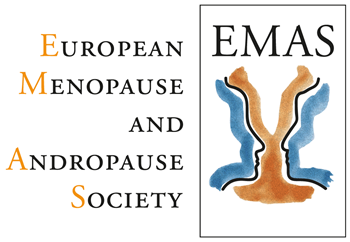Advancing Menopause Policy in Croatia: A Call to Action
A recent policy dialogue hosted at the Embassy of the Netherlands in Zagreb marked an important step toward placing menopause on the national health and policy agenda in Croatia. Titled “Menopause, Policies, and Economic Potential in Croatia,” the event brought together a diverse group of stakeholders, including representatives from the European Commission, public health institutions, healthcare professionals, academic leaders, civil society organizations, and employer representatives.
Held under the auspices of Ambassador Charlotte van Baak, and organized in collaboration with MenoGlobal (CEO Jennifer Barsky), the event created space for open and cross-sectoral dialogue on menopause as a pressing public health, workplace, and social issue—one too often overlooked in policy frameworks.
A Focus on Real-World Challenges and Policy Gaps
Dr Marina Goldštajn, President of the Croatian Menopause Society and Board Member of EMAS, delivered an impactful presentation reflecting both clinical expertise and patient realities. As a practicing OB/GYN, her remarks drew attention to the lived experiences of women in Croatia and the systemic gaps in medical education and healthcare provision related to menopause.
Her contribution was complemented by a presentation from MenoGlobal, which highlighted evolving international policy approaches to menopause, as well as the exclusive unveiling of findings from the first regional workplace survey on menstruation to menopause—conducted by CESI and pstaboo.
Menopause as a Public Policy Priority
In her reflections, Dr Goldštajn emphasized:
“Menopause is not only a medical issue—it is a public policy priority and an untapped source of economic potential. In Croatia, nearly one million women over 50 are navigating menopause, many while still active in the workforce. Yet, the issue remains underrecognized in health strategies, invisible in labor policy, and surrounded by social silence.”
She called for integrated, evidence-based action across public health, labor, education, and gender equality frameworks. Key recommendations included:
- Incorporating menopause into national health policies
- Improving clinical education and access to care
- Supporting menopause-friendly workplace practices
- Funding national data collection and research
- Ensuring menopause is considered in gender equality agendas
The European Perspective
Across the European Union, a shift is already underway. EMAS has developed clinical guidance and workplace recommendations that position menopause as a crucial stage in women’s health and productivity. As an EU Member State, Croatia has a vital opportunity to align with this progress and lead by example.
Moving Forward
This event served as an important milestone in breaking the silence around menopause and generating momentum for future action in Croatia. It demonstrated that menopause is not just a health issue—it is a matter of social justice, workforce equity, and long-term economic resilience.
EMAS commends Dr Goldštajn for her continued leadership in advancing menopause care and policy, and supports all efforts to embed midlife health into national and European strategies.

